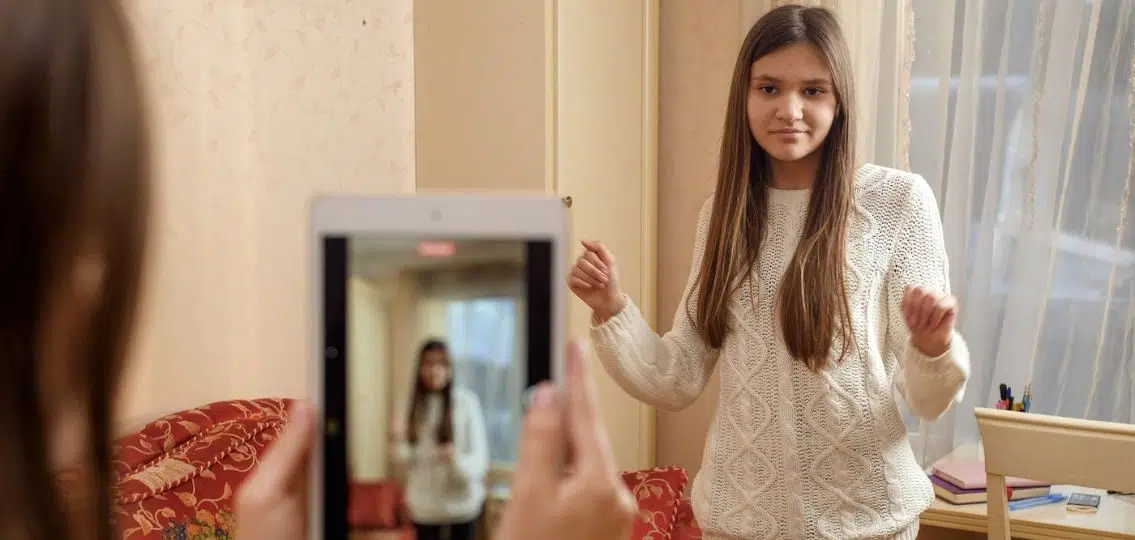Lately there has been a lot of bad press concerning TikTok. Since my family only uses it to watch funny cat videos, memes, and videos from celebrities, I decided to look into what the fuss is about. It turns out that the videos kids watch on TikTok are prompting them to take part in illegal and dangerous activities. To further complicate things, there are data privacy issues with the TikTok app itself. Which begs the question: how safe is TikTok for your teenage children?
Why is TikTok Dangerous?
One popular trend on TikTok is what’s known as a TikTok Challenge. TikTok Challenges are invitations for users to perform specific tasks, record them, and put the videos on TikTok with hashtags indicating what the challenges are. Many of these challenges are fun and harmless, inviting users to display a talent, lipsync, or perform a dance or skit. Companies such as Guess have also used social media challenges to promote their brand by encouraging users to show their fashion sense wearing their denim jeans. In all these cases, the goal is to involve TikTok users in the specific communities that the challenges represent.
However, some social media challenges are particularly dangerous. The question is, is TikTok dangerous? At least two different TikTok Challenges have ended in kids’ death. One of them, known as the “blackout challenge,” encouraged kids to choke themselves until they passed out. In 2021, two young kids who tried this died. The other challenge, known as the “Orbeez challenge,” involved shooting a high-powered water gun from a moving car. Recently, a New York City police officer fatally shot a teenager who was firing one of those guns during a water fight in his neighborhood.
Other TikTok challenges are not as deadly but are equally as problematic. In 2021, a series of challenges called “Devious Licks” encouraged students to either vandalize or steal items from their schools, resulting in the theft of soap dispensers, mirrors, and even urinals and sinks from schools around the country. Later the same year, a more serious challenge involved having students post about bomb or shooting threats to schools.
I spoke to a Rhode Island middle school teacher about the effects these challenges were having in her school. She said her school sustained some damage to a soap and a paper towel dispenser in one of the boys’ bathrooms as a result of the “devious licks” challenge. She also said that 25% of the kids didn’t show up to school the day of the bomb threat challenge. She and the other teachers had to reassure the kids who did come to school that there were extra police to make sure nothing bad happened.
The Dangers of TikTok: Security Issues
If all of this wasn’t enough to worry about, the FCC has recently lobbied for the removal of TikTok from app stores. The reason for this is that TikTok poses a security risk because of the data it collects and who has access to it. In addition to users’ search history, TikTok also collects biometric data, particularly “faceprints” and “voiceprints.” In other words, TikTok is basically saving data related to people’s faces and voices. According to the FCC, it’s unclear what TikTok is doing with this data. Also, because the company that created TikTok is a Chinese company, the Chinese government has the right to access all of that data, which could pose a national security threat. While TikTok denies it will misuse any of this data, it’s definitely something to worry about.
So what should parents do about their teenagers’ use of TikTok? Banning them from using it is probably not an option. If a kid really wants access, they can find a way to get it without your knowledge. A better option might be to make use of the parental controls available in the app through a feature called Family Pairing, which gives parents and guardians the ability to link to their children’s accounts. With Family Pairing activated, you can limit the content that comes to your teens, the viewers of your teens’ content, and who can comment on your teens’ videos. TikTok and the National PTA have put together a guide covering options parents can use to protect their teenagers online.
My best advice to feel better about TikTok is to talk to your kids about it. Find out what they’re doing on TikTok, and encourage any fun activities they might be involved in—maybe ask if you can somehow join one or more of their activities, too. Be sure to discuss the bad things you’ve been hearing, and let them know your thoughts and what’s expected of them when they see something inappropriate. When you talk to your kids about how they’re navigating the world online, you’re showing you care about their safety and you’re strengthening your bond with your kids.



